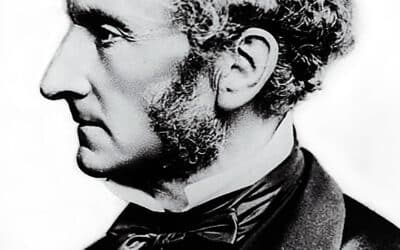As many times as I have spoken and written on this topic, I chose restraint on formally addressing it again until the madness of the 2016 election cycle faded. The reason for this restraint is that I have suffered the extreme hyperbolic madness of the election frenzy ten times during my life and I have learned not to attempt to reason with piranha while they are feeding. Not that every national election has this effect on the voting public. There have been thirteen national elections during my life, and I remember every one of them. But the frenzy only took hold ten of those thirteen times, because it was only needed ten times to control and manipulate the public.
As an adult, I have spent a great deal of effort studying the American election cycle and I can say with confidence, the election of 2016 was not unique, but rather a built-in aspect of the design of American politics. When any serious resistance to the powers of DC begin to show themselves, magically a hero appears to speak for the American people and lead them back to freedom. (A freedom that exists in their memory but never in reality.) This great hero always appears as an outsider, yet is actually a hand selected member of the elite. Three times incredibly wealthy and powerful New York businessmen from extremely wealthy and powerful New York families, have emerged to convince middle America that they were the champion of the little man, the trust buster, the hero of the downtrodden, and then they went on to cut backroom deals with the banking and industrial powers to start wars and further rob the wealth of the average American. Twelve times the persona of a great general has been used for the same purpose and produced the same results. Once, out of desperation, a movie actor was used. But the lesson to learn here is that no matter who the hollow soulless figure is that is offered as the hero and savior of the people, Leviathan grows and consumes the lives and wealth of all who honestly trade their sweat, blood, and intellect for a few morsels of bread and whatever shelter we can erect. In other words, the winner of every election is the State, and the losers are always the voters.
As you can see from the above statements, I have no confidence in the myth that voting can change the system and bring freedom to the downtrodden. I have said before that voting in a national election is numerically almost identical to playing the lottery with the exception that on a rare occasion the lottery can actually change a person’s life. Others have said that to understand a national election you would need to be a wise mathematician or a good economist. And a wise mathematician or good economist wouldn’t waste their time and effort to vote.
If we make the grand assumption that every vote is counted and reported in an honest fashion and that no voter fraud takes place (already we’re in the realm of magic and mysticism here), then we must also convince ourselves that the candidates we are offered are honest with us about their intentions. As outlandish as this thought experiment should be to any logically thinking human, you must remember we don’t live in a society of logically thinking humans. We live among a people who can believe that a product sold to us in a television ad can be both “new” and “improved” at the same time. We live among a people who believe that by painting an item green and labeling it “earth friendly” this negates the damage done by obtaining the minerals used to make it’s core components by strip mining a rain forest in Africa.
Voting plays a critical role in keeping the tax cattle on the farm. It allows people to believe the unbelievable. It allows people to feel they have a voice in government. It allows voters to believe they can push government in a direction that the voters approve of. It allows people to believe that they can “fire” bad politicians. Of course, none of these things are true, but they don’t have to be true. Much like a pacifier in a babies mouth, voting gives the suckers something to do without the danger of actually accomplishing anything. If you doubt that statement, just take an honest look at Leviathan. If voting was a path to freedom and good government would we see the American Empire as it is today? Would the local police in America be better armed than most national militaries of other countries?
I predict that at some time in the not too distant future, voting will be tied to your driver’s license or other government required identification and voting will be a mandated requirement of citizenship, as it already is in most other tyrannies. For example, most Americans don’t know that North Korea “enjoys” 100% voter participation and elected offices are divided between four political parties plus there are three seated politicians considered “independent”. If voting worked North Korea would be a paradise.
Some voters in America understand the problems I have listed above and largely agree. Some voters only vote because they want to influence local elections. This can be a valid argument. I don’t doubt that a small group of dedicated activists can stop a local bond issue. In a small town, it may even be possible to kick out a corrupt mayor. But these are temporary measures at best and do not address the wider issue of overarching government expansion. So yes, you may save a dollar or two by holding off the school levy for another six months, but evil never sleeps and the robbery of government will continue so long as we allow it to exist.
This brings us to the meat and potatoes of this article. Voting is prayer in the religion of statism. Prayer is a petition to an unseen higher power, asking that higher power to act on your behalf. Voting is a petition to an unseen higher power, government, asking that higher power to act on your behalf. Voting is an expression of faith that government will use its wealth, power, and/or force, to accomplish your will. If you didn’t believe voting worked you wouldn’t do it. Like voting, if you didn’t believe in prayer you wouldn’t pray. The exception is desperation. At times an otherwise atheistic person might be so desperate that they pray, not believing it will work, but as a last ditch effort hoping that it may work. For some voters, desperation can drive them to vote, even if they understand it probably won’t help. Specifically, if the State can scare you with its latest boogeyman, then that may push the desperate voter to the polls out of fear. “Anyone but Hillary!” “Anyone but Bush!” “This is the most important election ever!” “Anyone but Dewey!” “Anyone but Tilden!” “There’s never been an election like this one!” Fear of the boogeyman works on about half of the population every time.
Some people object to the idea that government is an unseen higher power. They point to government employees, politicians, and uniformed enforcers as proof of government’s existence. But that is no more valid than pointing to clergy as proof of the existence of a god. Let’s switch over and use the word “State” here, capitalized as a personal pronoun, rather than its simple legal definition as a noun. I believe this to be more accurate. The State is more than people issuing and obeying orders. The State is the embodiment of the mythos that gives the authority to some people to give orders that they otherwise would have no authority to give. I have said before, you could call the State the mystical character angelus of the body politic. Without faith in the authority of the State, who would obey outlandish orders given by some tyrant? Equally, if you don’t believe in God why would you obey a pope when he forbids or commands some behavior? So the point being that you can’t touch or see the State, and yet people take action every day based on their belief in its validity and the authority of its ministers.
If at this point we are in agreement that voting is an act of faith in the religion of statism, and if I have proven that one only votes if one believes one’s vote will influence the State to act on one’s behalf, then we may draw the conclusion that voting is the physical action of attempting to use the State to get what one wants.
Assuming that is the case, let us now examine government. It has been said, governments are attempts at forced monopolies of law, justice, and violence, usually confined to geographic borders, and paid for entirely through dishonesty, theft, extortion, and threats thereof. Every government action is predicated by this dishonesty and violence. Before a ballot can be printed, before a voting machine can be purchased, before a single light bulb can glow in a government building, these methods must first be used to obtain the funding. This means that anything that you want government to do must first involve an immoral act. That act is perpetrated against everyone within the geographical boundaries of that government. A vote is an attempt to use those immoral methods to execute your will over everyone in the nation, at the cost paid by everyone in the nation, whether or not they vote, and whether or not they are employed by government.
At this point in the conversation, the famous “defensive voting” argument is often employed. It’s the “Muh ROOOOADS” of the voting discussion. I will agree that defensive voting is morally neutral if you the voter first voluntarily pay all of the following; the cost of writing the bill, the cost for your ballot, the cost for all the processing of the election, the full cost of the bill’s execution, and finally you agree to stand liable for any negative unforeseen consequences that take place due to the execution of the bill. But that is impossible! Every action taken by government will have unseen consequences that you cannot predict. Also, even a bill claiming to shrink government or claiming to remove some unfair law will be riddled with back-language and riders the voters never see.
Self-defense happens when you are threatened or attacked and you strike at the perpetrator. No sane person would argue that you can strike vast numbers of innocent bystanders in your attempt to perform self-defense. Voting as self-defense is like shooting a shotgun into a crowd because three people in the crowd are a threat to you. When you vote, even in so-called self-defense, you are attempting to use government for your will and, if it were true that your vote actually mattered, you would be using the brutality of government against and at the cost of every innocent bystander in the country.
This takes me back to the topic of desperation. The desperate voter has been fooled into thinking that voting is their only peaceful choice of action, to stop the growth and spread of tyranny and injustice. Even some prominent anarchists have proclaimed the false notion that if you don’t vote you are doing nothing to stop government. When someone spews this nonsense at you, keep in mind that just because they can’t think of anything productive to do it doesn’t mean there is actually nothing that can be done. Your choice of action is not limited by the tiny imagination of that other person. There are plenty of actions you can take that are both effective and ethical.
For more on taking effective ethical actions, read my book “Sedition Subversion and Sabotage Field Manual No.1, A Three-Part Solution to The State” – and let’s get busy making our actions count.






